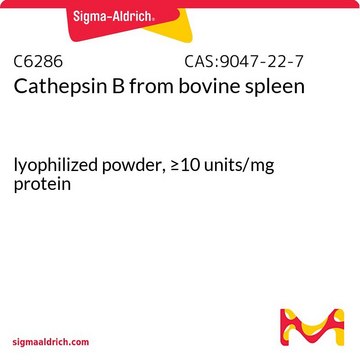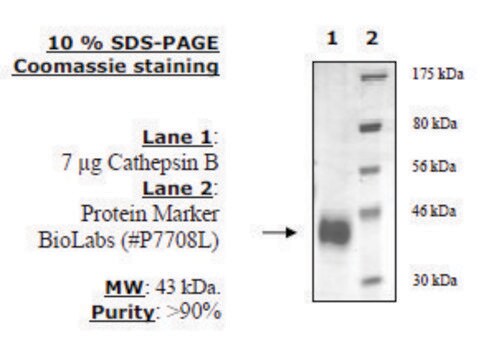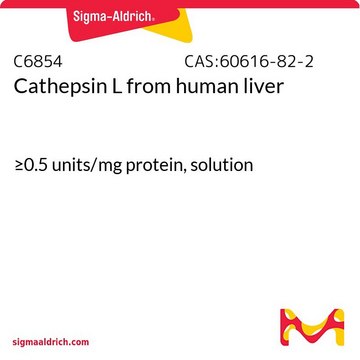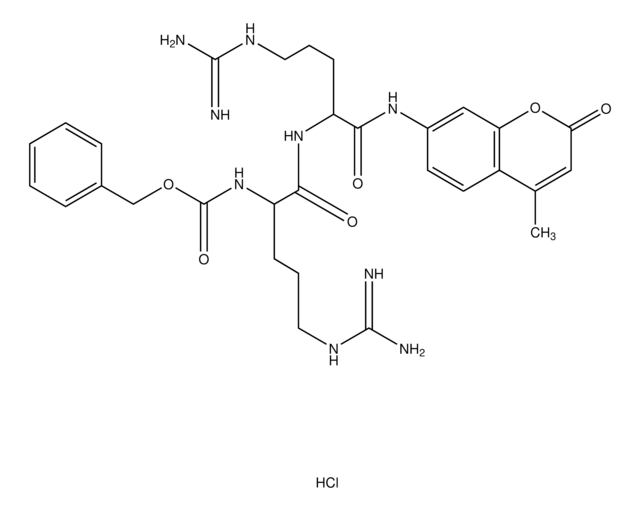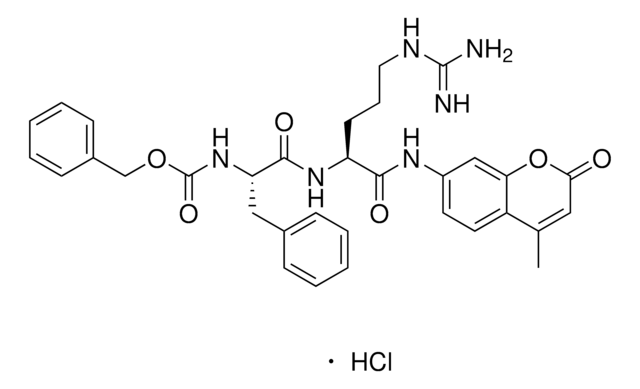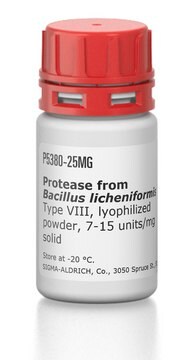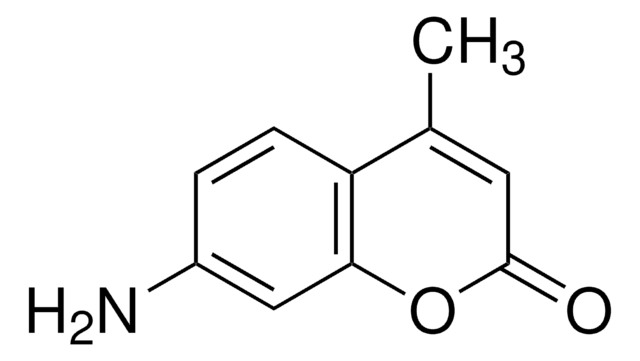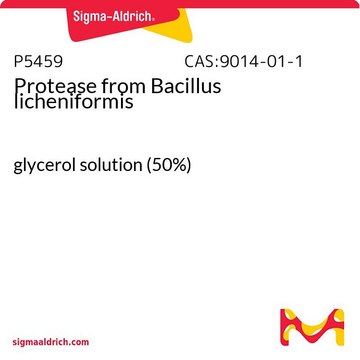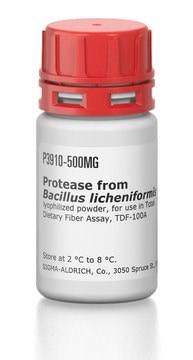C0150
Cathepsin B from human placenta
lyophilized powder, ≥5 units/mg protein
Synonyme(s) :
Cathepsin B1
About This Item
Produits recommandés
Forme
lyophilized powder
Activité spécifique
≥5 units/mg protein
Poids mol.
24.5 kDa
Composition
Protein, ~50% Lowry
Solubilité
H2O: soluble 1.0 mg/mL, clear
Numéro d'accès UniProt
Température de stockage
−20°C
Informations sur le gène
human ... CTSB(1508)
Description générale
Application
Actions biochimiques/physiologiques
Définition de l'unité
Forme physique
Notes préparatoires
Inhibiteur
Code de la classe de stockage
11 - Combustible Solids
Classe de danger pour l'eau (WGK)
WGK 3
Point d'éclair (°F)
Not applicable
Point d'éclair (°C)
Not applicable
Certificats d'analyse (COA)
Recherchez un Certificats d'analyse (COA) en saisissant le numéro de lot du produit. Les numéros de lot figurent sur l'étiquette du produit après les mots "Lot" ou "Batch".
Déjà en possession de ce produit ?
Retrouvez la documentation relative aux produits que vous avez récemment achetés dans la Bibliothèque de documents.
Les clients ont également consulté
Articles
This procedure applies to all products that have a specification for Cathepsin B activity determined by the liberation of 7-amino-4-methylcoumarin from Z-Arg-Arg 7-amido-4-methylcoumarin.
Notre équipe de scientifiques dispose d'une expérience dans tous les secteurs de la recherche, notamment en sciences de la vie, science des matériaux, synthèse chimique, chromatographie, analyse et dans de nombreux autres domaines..
Contacter notre Service technique
